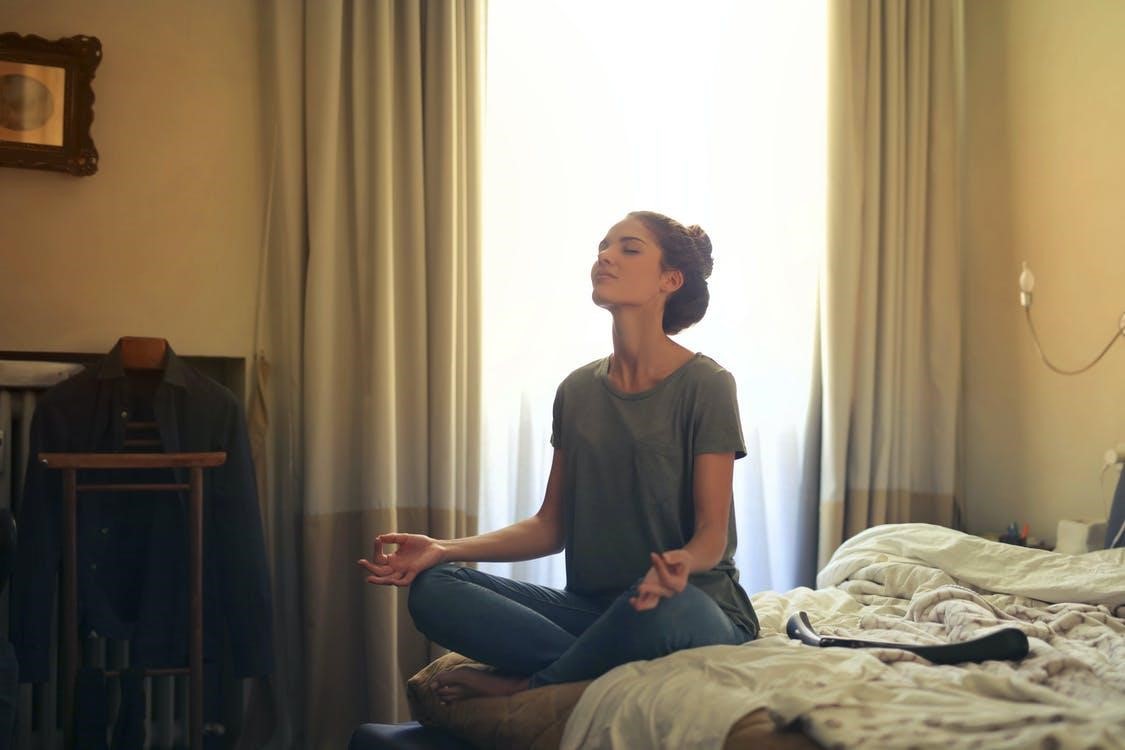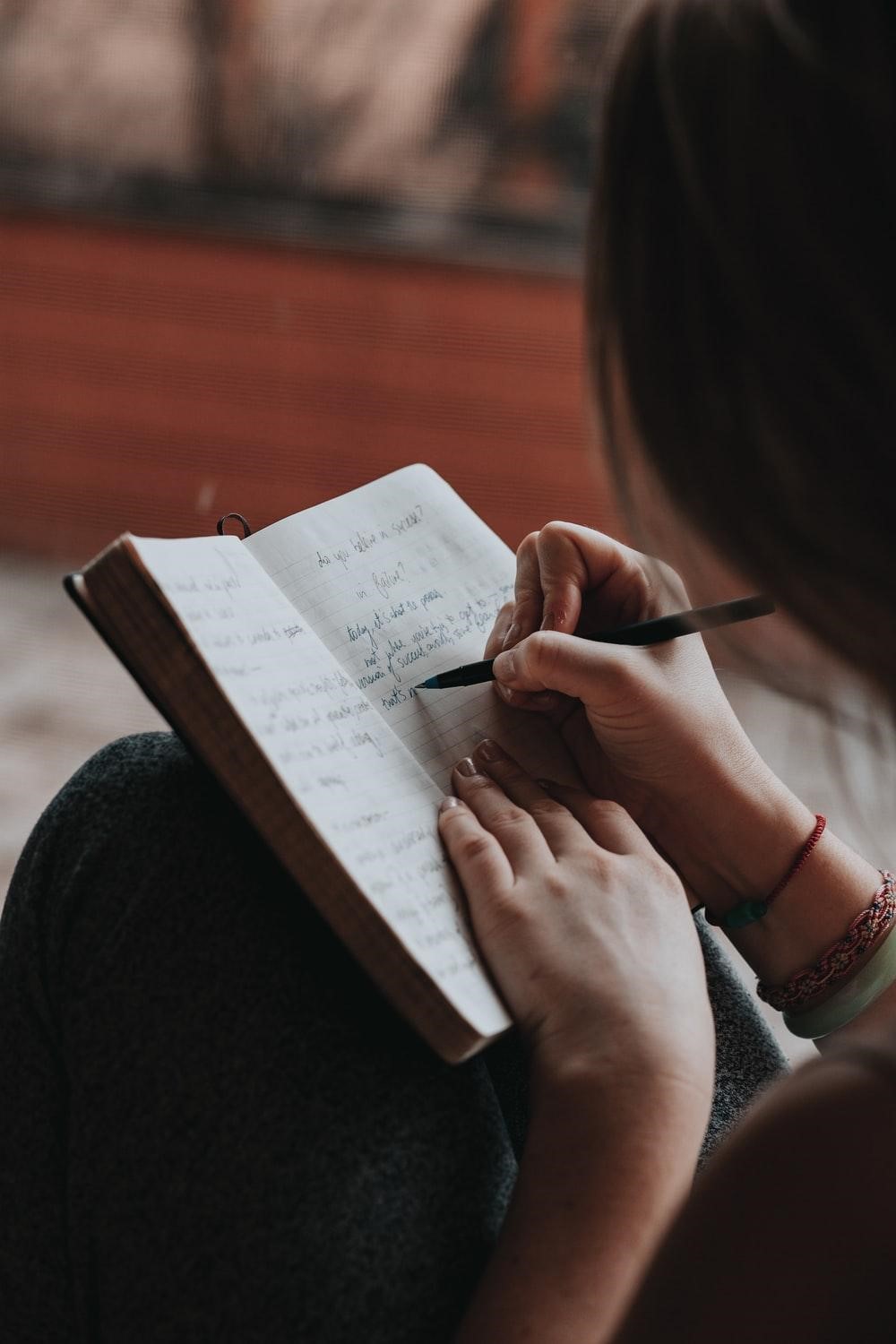5 Amazing Morning Rituals To Make Your Day More Mindful
At times, life can feel like it's flying by. At times, it feels as though the mind is always zooming out into the future or dwelling in the past. Imagine being able to slow down to be really mindful of what is going on in your life to find meaning in simple pleasures.
Author:Daniel JamesReviewer:Karan EmeryJan 09, 20239.1K Shares836K Views

At times, life can feel like it's flying by. At times, it feels as though the mind is always zooming out into the future or dwelling in the past. Imagine being able to slow down to be really mindful of what is going on in your life to find meaning in simple pleasures.
Mindfulness practice will help you relax, become more aware of your breathing, and invite a feeling of harmony and contentment that you might not have had before. Mindfulness is something you do on a daily basis. And you can start practicing this state of mind as soon as you wake up.
Incorporating mindfulness into one's morning routine has many benefits. As you continue to learn mindfulness, you'll see that your life changes in a lot of ways. Your anxiety will dissipate, making you comfortable and relaxed. Your immune system will strengthen, helping you to better fend off illnesses.
Your outlook will increase, and the severity of your depressive symptoms will decrease. Your general well-being will change, and the quality of your life will improve. Since certain people mix up mindfulness and meditation, I'd like to make sure you're clear on the distinctions.
Mindfulness is the practice of becoming more aware of yourself and your surroundings. Meditation is the process of focusing your attention on a particular object, which in certain situations may be your consciousness.
Although mindfulness and meditation are two separate activities, they complement each other nicely. When doing mindfulness or meditation, the most important thing to remember is that the mind will drift. There is no such thing as perfection of mindfulness. There will always be times when your mind wanders to another topic. The 4:00 meeting, the washing in the hallway, the squabble with a colleague.
Gently welcome your consciousness back into the current moment by being tender with yourself. Aim to devote 5 minutes to each activity. You don't have to complete all of them. Experiment with each practice to see which ones work best for you. But if you only have time for one, start with this one.
Detoxify Your Physical And Mental Bodies
As soon as you wake up, turn your attention to your paws. See and sense the powerful vibration there, then use your fingers to cleanse your aura. Start at the top of your head and work your way down to your bottom, shifting your hands gently over your body.
This exercise gets rid of any residual energy from the day before, as well as any energy that might have been accumulated overnight which is potentially detrimental to your wellbeing. Since cleansing your aura, wash your hands in freezing water, or your whole body if you're feeling courageous. The cool water helps you ground yourself while still dissipating any toxic energies you may have removed.
Make A Daily Goal For Yourself
Have you ever been to a yoga classwhere the instructor challenged you to set a practice goal? If you've done so, you're already aware of how this easy act will change your mat experience. The same thing would happen if you set a routine target each morning.
A purpose is a term or phrase that you use to guide your day. In comparison to targets, which are normally based on actions and particular consequences, intentions are meant to evoke a certain emotion or feeling.
Focusing your mind on a regular purpose lets you cultivate your presence in each moment by activating your consciousness. Like attracts like, according to the Law of Attraction, and motives are no exception. Set an intention, then, bring the emotion you want to nurture out into the universe, where it can be returned to you as energy.
Your intent is often informed by the insight you learn by listening to your intuition. Once you've set your goal, you can carry it with you during the day. You may also make your aim the focus of your meditation.
Take Some Time To Meditate
If you've never tried meditating first thing in the morning, you might find it much easier because your brain is fresh and calmer. Your mind would be less agitated and scattered, allowing you to focus on the meditation's object.
You can meditate in whatever way you like. Examining your whole body from head to toe will help you figure out where you want to start the day.
To begin, find a comfortable seat in which you can sit with your spine straight. Then take a deep breath in through your nose and slowly exhale through your teeth. If you think it's appropriate, close your eyes.
Allow your focus to travel down your body from the top of your head to your knees, scanning your whole body from the top of your head to your feet, including the spine, stomach, torso, and arms. When scanning, look for physical sensations such as pain, soreness, temperature, stiffness, or tightness.
As a result of this information, you're becoming more conscious of your body, which sets the stage for creating a sense of perception of physical stimulation as you go through your day. While physical stimulation should be noted, it's also important to remember the more nuanced thoughts and feelings that might arise.
Keep And Write In A Journal
Writing in your diary is close to doing a body scan, except instead of looking for physical triggers, you're looking for emotions and emotions. Exploring your mind and the state of your feelings lets you build a closer connection with yourself by increasing your inner insight and self-awareness.
Take a few minutes to listen to your inner voice and notice any emotions or feelings that emerge. Your thoughts will return to your target, which is an excellent place to start your journal entry. For a more guided approach to your prose, try one of the following journal prompts.
What are three things I'm grateful for right now? What are three thoughts or impulses that I'd like to explore and/or share with others today? What are the most prominent thoughts in my mind? Whatever feelings am I currently able to recognise in myself?
Just be careful not to get too close to a particular thought. Simply observe each one as it passes as a bystander. After you finish your journal, it's time to get back into nature.
Take A Walk Outside
Nature has a strange way of luring you into the current moment. It helps you achieve a meditative state by allowing you to appreciate the wonder of nature in the only moment that matters: right now. Many who do not practice meditation on a regular basis have shown nature's potential to enhance their meditative awareness.
Allowing yourself to become more aware of how nature impacts you will help you practice mindfulness. The infinite beauty of nature will have a profound effect on your feelings and thoughts. Stepping into the calm and silence of nature first thing in the morning will help to clear your mind. There aren't any technological distractions competing for your time.
Allowing yourself to spend time outdoors has a secondary benefit: it enhances your connection to the environment. Nature helps the mind stay in the current moment by making you feel more balanced.
Spending some time with nature first thing in the morning will make you feel more relaxed and conscious during the day. When you spend time with nature, you become one with its force, which is both relaxing and energizing.

Daniel James
Author
Daniel James is a distinguished gerontologist, author, and professional coach known for his expertise in health and aging.
With degrees from Georgia Tech and UCLA, including a diploma in gerontology from the University of Boston, Daniel brings over 15 years of experience to his work.
His credentials also include a Professional Coaching Certification, enhancing his credibility in personal development and well-being.
In his free time, Daniel is an avid runner and tennis player, passionate about fitness, wellness, and staying active.
His commitment to improving lives through health education and coaching reflects his passion and dedication in both professional and personal endeavors.

Karan Emery
Reviewer
Karan Emery, an accomplished researcher and leader in health sciences, biotechnology, and pharmaceuticals, brings over two decades of experience to the table. Holding a Ph.D. in Pharmaceutical Sciences from Stanford University, Karan's credentials underscore her authority in the field.
With a track record of groundbreaking research and numerous peer-reviewed publications in prestigious journals, Karan's expertise is widely recognized in the scientific community.
Her writing style is characterized by its clarity and meticulous attention to detail, making complex scientific concepts accessible to a broad audience. Apart from her professional endeavors, Karan enjoys cooking, learning about different cultures and languages, watching documentaries, and visiting historical landmarks.
Committed to advancing knowledge and improving health outcomes, Karan Emery continues to make significant contributions to the fields of health, biotechnology, and pharmaceuticals.
Latest Articles
Popular Articles



